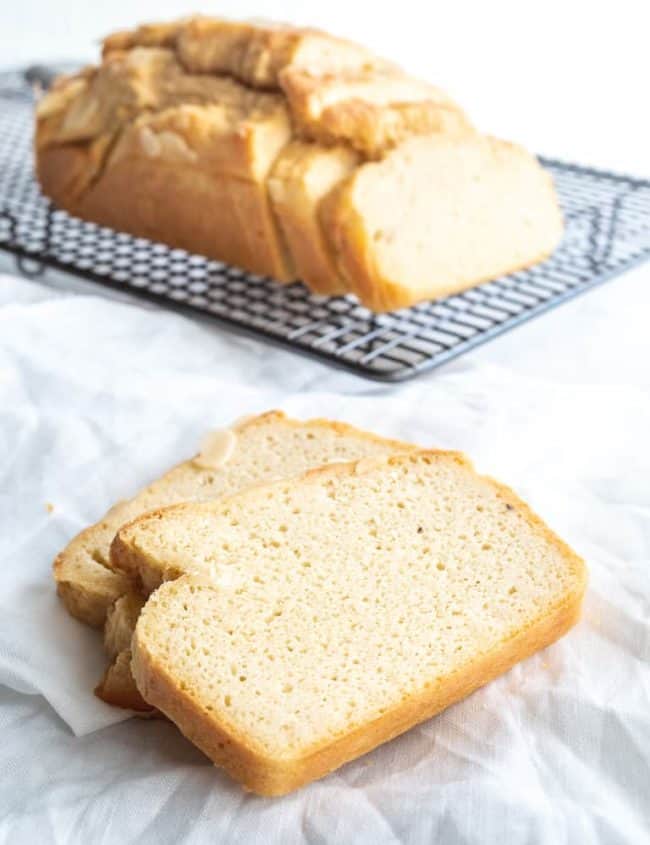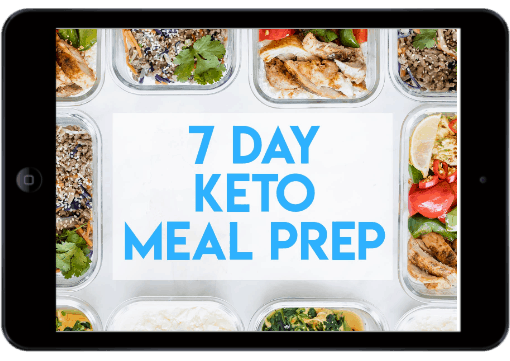Hi gang, welcome back to another video. Today, I’m covering one of the most common questions I get asked.
What am I doing wrong if I’m not losing weight on keto?
This question can be answered in several different ways, but today I’m only covering one aspect of the question, and that is body composition.
Before we start, I want to cover some background into the ketogenic diet, because this information can often be the first hurdle when it comes to the expectations around weight loss.
During the first week on keto, you may have noticed that you lost some weight. Many people say this is what’s called water weight. And indeed, it is, but let me explain.
Carbohydrates are stored in the body as glycogen. Glycogen is energy that stored in your body along with 3 times its weight in water.
Most well-fed people carry anywhere up to 2,000 calories of glycogen on their body.
We know that 1g of carbohydrate equals 4 calories, which means 2,000 calories divided by 4 should give us 500, which equals 500g of stored carbohydrates on your body. This is housed in your muscles.
There is also up to an additional 400 calories of glycogen stored in your liver, which equals 100g of additionally stored carbohydrate as energy there as well.
The reason why this is important is this: 600g of glycogen will store up to 2.5kgs or 5.5 pounds of water.
When you follow a ketogenic diet, your glycogen levels become depleted since there are very limited carbohydrates being consumed.
All in all, some people may lose up to 3kgs of weight in the first week or more, depending on your exercise levels, and your glycogen storage capacity.
So when week 2 rolls around, it might be easy to assume you’ll lose another 2.5kgs or 5.5lbs of weight. But since you are all out of glycogen, this doesn’t happen.
The first reaction is disappointment, negative self-talk, and ultimately huge disappointments when no weight is lost, or even if weight is gained slightly in the second week.
I’m here to tell you this is totally normal, and what to do when you have reached this point.
So far, you might have been weighing yourself every morning at the same time. If you are, these tips might help.
Your body weight will fluctuate due to the following:
- Hydration
- Salt Intake
- Exercise Intensity and
- Different foods consumed
So with all these factors playing such large parts in what the scale says, its time to disempower the scales, and look for better alternatives.
Body measurements are often overlooked or done incorrectly but are one of the best ways to track progress with, or without a scale.
Here is how I measure myself, and some suggestions on how you can measure yourself as well.
Starting with the chest, or the bust for females, you need to measure around the widest part and note these down either on a piece of paper, excel spreadsheet or an app such as MyFitnessPal or Cronometer.
Next, measure your waist. This measurement is best done horizontally from the belly button, as it’s the perfect marking point to consistently measure from every time.
Next, measure your hips. This is done from the widest section. Standing in front of a mirror can often be the best way to do this for yourself or get someone else to do this for you.
For best results, you can measure your thighs and arms as well.
This can be done by placing your leg forward, and measuring from the kneecap up to a numbered point, let’s say 11inches, and going around making sure its snug.
Again, from the arm, measure from a numbered point of 5 inches depending on your height (I’m 6 foot 5 inches tall, so you’re measurements might be different).
I recommend only measuring once per week. I usually do this on a Monday for two reasons:
- Firstly, so I don’t blow it over the weekend
- And secondly, it’s just a consistent time of the week where I remember to do it.
If your partner is measuring for you, make sure they measure it each time, as different people will pull slightly differently, which will give you different results.
I often notice that the measurements around my waist will change more than any other section, but these will be different for you.
Being disappointed at the scale is wasted energy. Use it as one marker that you track, but not the only measurement that you use.
Another fantastic measurement to track is what I call progress pictures.
Standing in front of the mirror with your shirt pulled up, (or naked, depending on how brave you are) is the best way to do this. Again, only do this once per week maximum. You will start to see changes after 3-4 weeks, so be patient.
Another common issue with measuring weight on a scale is the occasional off plan meal.
Keep in mind what we spoke about at the start of this video. If you ate a meal that contained 100g of carbohydrates, you’ll store 300g of water along with that. Don’t freak out at the scale, just keep in mind that it will eventually go away with the reduction of carbohydrates when you return to your ketogenic diet.
So, there you have it. A ketogenic diet is a useful tool, but it’s not magic. Slowly build a healthy lifestyle one piece at a time, and before you know it, you’ll arrive at your goal weight.
Of course, this isn’t the only answer to this common question. I’ve put together a little questionnaire on my website that walks you through some of the common scenarios which might be preventing you from losing weight.
So jump on over and take the quiz now, and start adding measurements to your list of data points to track. Disempower the scales, share this video with a friend, and until next time.

























beverly says
thank you, i found this very helpful. i lost 3kgs already but now i have been stuck on 77kgs for a week and also introduced running but seeing no change. i am gonna give this time.
Saoirse says
Thanks for sharing this Aaron! You’ve basically described EVERYTHING I’ve done (neg self talk, disappointment, etc)
It’s good to see an explanation and suggestion for alternative. I will give this keto diet a couple more weeks. Thanks again!
Laura Necker says
Hi, Since depleting my muscles of glycogen, I’ve hit the wet noodle wall! I have no stamina, endurance or energy to exercise anymore. My legs feel like wet noodles. I am a 60 year old woman. I obviously don’t make the hormones (growth, testosterone, estrogen, etc..) one like yourself at your age does. I feel better after a cup of chicken bouillon soup but still don’t have the energy or get up and go to tackle large jobs like I did on other diets. Also I’ve read that people who train hard do a carb load before hand. So that tells me I will never have that muscle energy again if I stay on a Keto diet.
So, is it true, Ketos will get you there and I just have to be patient? I hate not exercising.
Your thoughts?
Laura Necker
FatForWeightLoss says
Hey Laura,
There is a great book by Dr Stephen Phinney and Dr Jeff Volek on the Art And Science Of Low Carb Performance – I highly suggest you read this book as its a complicated topic to answer for everyone.